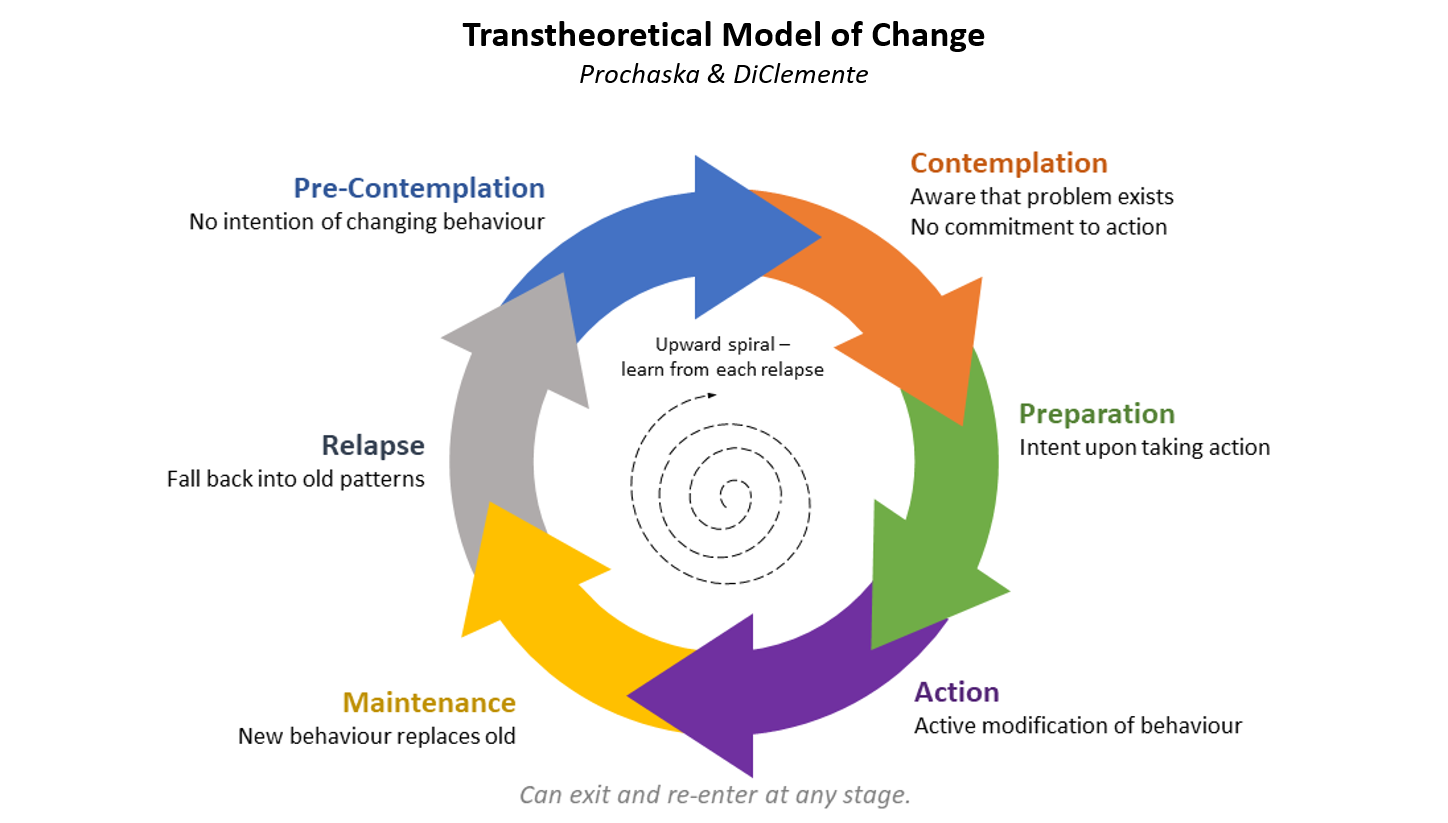Topic outline
-
-
![]()
Image (c) UniSA
-
As we saw in the two scenarios in the reflection exercise, There are different ways you can intervene in a situation where sexism is occurring, including:
- displaying and sharing how you feel about the situation;
- supporting the recipient of the sexist conduct;
- speaking up or directly to the disrespectful person.
There is no one-size-fits-all approach to bystander intervention.
-
The Four D's of Bystander Intervention
There are variances of the Ds ranging in numbers from three to seven. We are going to introduce four:
-
-
The Cycle of Behaviour Change
Change doesn't always happen overnight and even when it does, relapses can happen.
The model below illustrates a cycle of behaviour change. People start out either unaware or uncaring that their behaviour is problematic. However, over time and through repeated exposure to new ways of thinking, they may move into a phase of contemplation where they are aware their behaviour and/or attitudes are problematic. They then may move into the Preparation stage, where they consider how they might change and in what direction, then take Action and in a phase of Maintenance will work to sustain their behaviour. Relapses can occur. In fact, people can exit and re-enter this cycle at any stage. The good news is that it is an upward spiral - the more times people try, the closer they get to sustaining the change.
Change requires time and repeated intervention.
![]()
-
Step Up - American University (05:25)
The following short clip from American University will demonstrate the 3D Framework for being an active bystander. As you will see the examples shown in the video can also be used in a range of situations and are not limited to situations of sexual harassment or sexual assault.
Content warning: This video contains scenarios including domestic violence, sexual assault, hazing and attempted suicide, which may be distressing for some viewers. Please remember there are support services available at UniSA and the contact details are provided at the end of this module.
-
Scenarios
The following scenarios will give you a chance to respond as an active bystander and get feedback on your choices.
-
When should I delegate?
We recommend delegating as a form of bystander intervention in more serious incidents of gender-based violence. For example, if you witness an incident of physical violence or threats, one should always delegate to a position of authority, such as SA Police or a security service if you’re at a venue. If the incident occurs on campus, you can contact Security.
Even if you can’t intervene in the moment, you can make a difference for the person who has been targeted by everyday sexism, by checking in on them after the fact. Some ways you can check in with the person impacted include:
-
Asking them if they’re okay.
-
Telling them you’re sorry that this happened to them.
-
Telling them you don’t agree with what was said.
-
Asking them if there’s any way you can support them.
If we all individually call out incidents of everyday sexism, we will collectively contribute to a more respectful community, free from gender-based violence.
Remember, everyone can do something. It is so important that we show up for one another as active bystanders.
-
-

